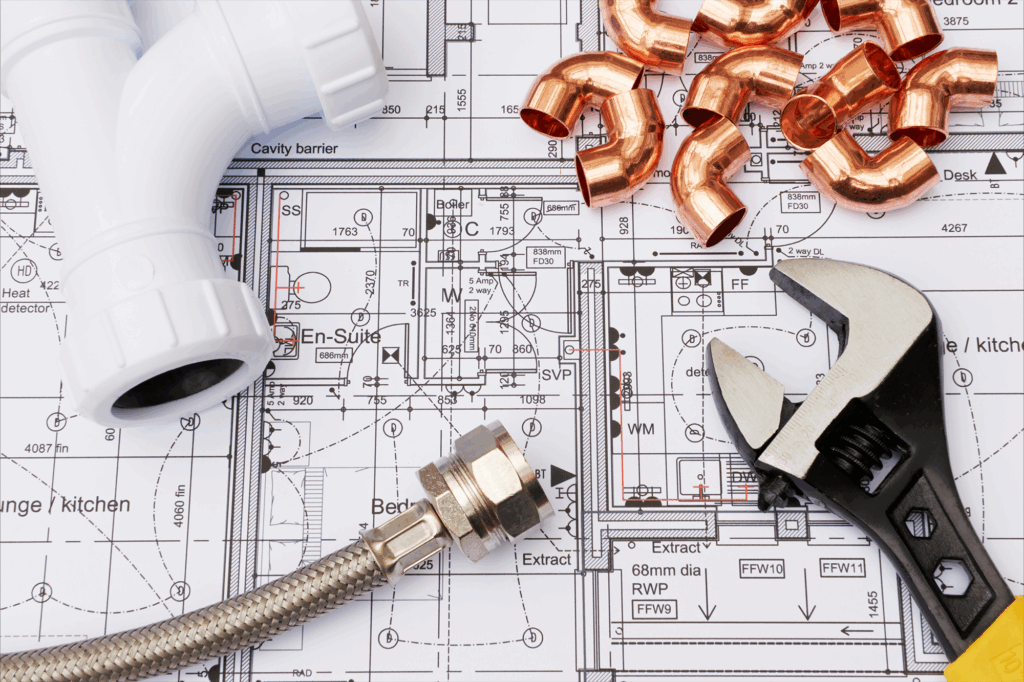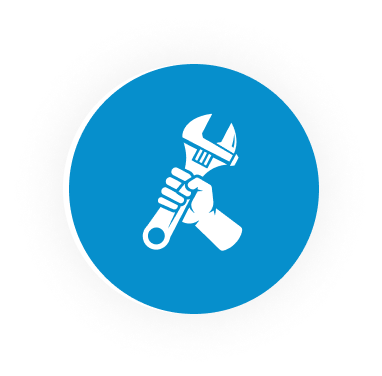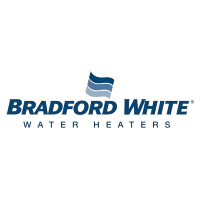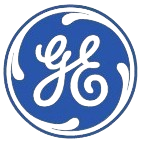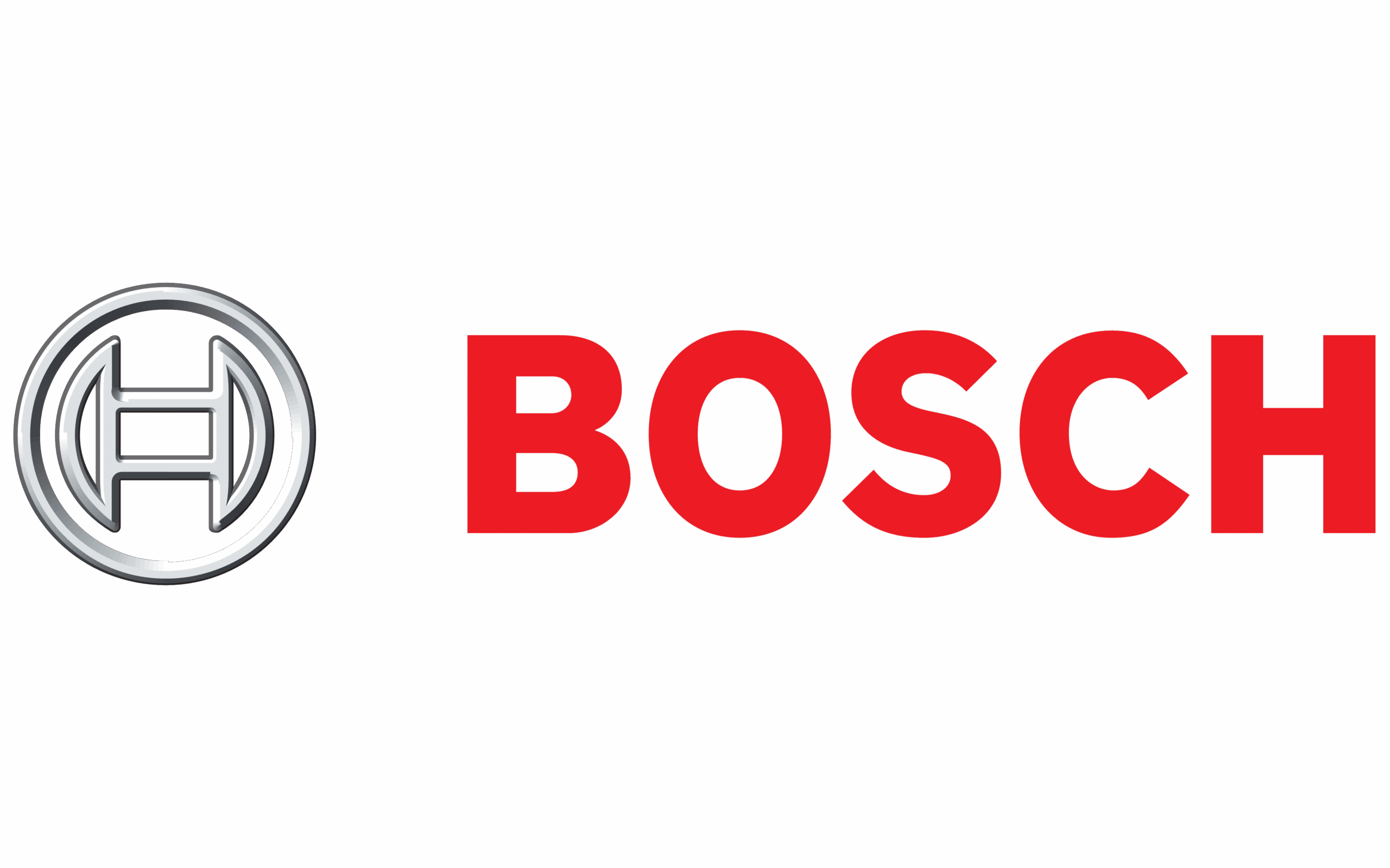DIY projects are all the rage these days, with everyone fancying themselves as YouTube home renovation experts. However, many of these ambitious souls find themselves paying the price when code violations occur, particularly when it comes to plumbing or plumbing-related DIY projects. While it’s great to save money by being handy, you should also be aware of common code violations so that you can avoid them and save yourself from paying hefty fines.
Why Plumbing Codes Exist
Plumbing codes can be irritating, but they are not intended to complicate your life. They are designed to protect people from damage to their homes, water contamination, and health risks like mold or bacteria in the water. They also are intended to prevent water waste, which can send your water bill through the roof.
Why Do Plumbing Code Violations Occur?
Violations usually occur because property owners try to cut corners with DIY projects, or by relying on unlicensed workers in order to keep more money in their wallet. In Queens, in particular, homeowners often convert basements or cellars into living spaces to generate rental income, but they hire handymen instead of licensed plumbers and fail to get required permits. Unfortunately, this often leads to unsafe gas piping, improper drainage, and missing code- required protections like venting and backflow devices.
Most Common Plumbing Code Violations
Here are some of the most common code violations that you might run into.
Cross Connections
Cross connections occur when a potable water line is connected to a non-potable source. The backflow can then contaminate the potable water. An example of this might be an improperly installed dishwasher. You certainly don’t want to eat from dishes contaminated with waste.
Leaking Pipes
Something as simple as a leaking pipe is a violation, causing water to be wasted and creating the potential for property damage and mold.
Incorrect Drainage
Plumbing fixtures have to be connected to appropriate drainage systems for wastewater to be removed. If a drain is the incorrect size, pipes are not sloped correctly, or the water is not draining to the right location, a violation has occurred.
Faulty Backflow Prevention
Within plumbing systems, there are devices designed to prevent the backflow of water that could contaminate potable water. If these devices are faulty or missing, backflow can occur and cause a health hazard.
Faulty Plumbing Fixtures
Fixtures used need to meet plumbing codes and function properly. Incorrect fixtures can lead to leaking sinks, improper drainage, or toilets that malfunction, which is something that no one wants to deal with.
Illegal Connections
Connecting illegally to a city water or sewer line or creating a connection that bypasses a water meter are clear violations.
Improper Ventilation
Plumbing systems have ventilation systems so that sewer gas does not build up, and so that drainage occurs properly. If the ventilation is insufficient or improperly installed, violations have occurred.
Improper Venting of Gas Appliances
Boilers, water heaters, and dryers frequently have incorrect or unsafe flue connections, leading to carbon monoxide hazards.
Non-Code-Compliant Materials
Use of piping or fittings not permitted by the NYC Plumbing Code are violations (i.e. PVC used on gas lines or PEX in areas where it’s restricted).
Inadequate Water
If there is not enough water pressure, faulty or improperly sized water heaters, or poor water quality, there can be an inadequate water supply violation.
Unpermitted Alterations
Renovations in kitchens and bathrooms are often done with plumbing lines rerouted or added without permits. Hidden violations often include undersized piping, unvented traps, or unauthorized gas work.
Gas Line Issues or Illegal Gas Work
Gas line leaks, corroded gas lines, or gas lines in prohibited locations are just some of the gas line issues that are violations. Additionally, unlicensed workers or DIYers sometimes run or alter gas lines. This is a serious violation, highly enforced by the DOB and utility companies because of the safety hazards.
Illegal Conversions/Change of Occupancy
Many homeowners convert cellars into apartments or living spaces without permits. This often involves adding kitchens, bathrooms, and gas appliances without proper plumbing or ventilation. Not only is this a DOB violation, but it also creates major safety risks, especially with gas and drainage.
Fixing Plumbing Code Violations
If you have received a code violation notice, the path is crystal clear. You need to contact a licensed plumber, and the plumber needs to get proper permits for the work that needs to be done to correct the violation. Then once the work is done, proper inspections need to be performed.
If you have not received a violation notice but are concerned that violations may exist because of DIY work, you should have a plumbing inspection by a licensed plumber. They will check your plumbing system top to bottom, sometimes using special equipment, to identify any issues or violations. If any violations are found, they will obtain permits and remedy the issues.
It’s important for you to keep all records of plumbing permits and receipts for work on your property. If you’ve purchased a new property, you should try to obtain those records from the previous owner. If you can’t get those records, having a plumbing inspection can ease your mind and save you from costly fines and penalties in the future.
Consequences of Code Violations
If plumbing violations go unchecked in New York City, homeowners face serious risks on several levels:
Safety Hazards – Illegal gas work or unvented appliances can cause gas leaks, explosions, or carbon monoxide poisoning. Improper drainage or venting can lead to sewer gas exposure and unsanitary conditions.
DOB Enforcement Actions – The Department of Buildings can issue civil penalties and fines, place violations on record, or even issue stop-work orders. For severe cases like illegal occupancy or unsafe gas conditions, they can order vacate notices that force tenants or families out of the property.
Utility Shutoffs – Con Edison or National Grid can disconnect gas service if illegal or unsafe connections are discovered. Reinstating service requires inspections, filings (often an LAA), and passing pressure tests, which can be costly and time-consuming.
Legal & Financial Liability – Homeowners may become liable for injuries, accidents, or fires linked to unpermitted work. Insurance companies can deny coverage if damages are tied to code violations or unlicensed plumbing work.
Property Value & Future Sales – Open violations appear in public DOB records and can block refinancing, delay closings, or reduce property value until corrected and properly signed off.
Avoiding Code Violations
The best way to avoid plumbing violations is to do things the right way from the start. In New York City, that means:
Always Use a Licensed Master Plumber (LMP) – Only a licensed professional can legally perform gas and plumbing work in NYC. This protects you from unsafe installations and ensures that filings are done correctly with the Department of Buildings.
File the Proper Permits – Even “small” jobs, like moving a sink or capping a gas line, often require a Limited Alteration Application (LAA). Skipping permits may feel faster, but it almost always leads to violations, fines, and higher costs down the road.
Don’t Convert Cellars or Basements Without Approval – Illegal occupancy changes are one of the top violations in Queens. Before adding a bathroom or kitchen in these spaces, check your Certificate of Occupancy and get the proper approvals.
Stay Ahead on Safety Devices – Make sure required backflow preventers, venting systems, and pressure tests are in place and up to code. Many violations come from missing or improperly installed safety devices.
Schedule Routine Maintenance & Inspections – Having a licensed plumber inspect your gas and water systems every few years can catch small issues before they become costly violations.
At the end of the day, homeowners save time, money, and stress by working with a licensed
plumber who knows the NYC Plumbing Code inside and out. Doing it right the first time is
always less expensive than fixing violations later.
A Real-World Example from NYPP
A homeowner in Queens reached out after receiving a violation from the Department of Buildings. The violation was for illegal occupancy because their cellar had been converted into a living space with a three-piece bathroom, a residential sink, and gas lines running to a stove. None of this work had been filed or approved, which meant the home was out of compliance and unsafe. We see this happen far too often.
When we arrived, we didn’t just look at the illegal fixtures — we dug deeper. During our research, we discovered that even the existing legal gas appliances on that meter had never been properly registered with the DOB. That meant the property was carrying more violations than the homeowner realized.
To bring everything back into compliance, we filed a Limited Alteration Application (LAA).
This allowed us to:
Cap and remove the illegal bathroom and gas stove in the cellar.
Register the existing legal gas appliances on the gas meter so they were officially recognized.
Test the entire gas line system because once you cap or remove a gas line, code requires a full pressure test to ensure the system’s integrity.
In the end, the violation was cleared, the home was made safe, and the owner avoided steeper fines and potential utility shutoffs. Most importantly, they now had peace of mind knowing their property was fully code-compliant and their family was protected.
In Closing
Plumbing code violations happen all too often, but you can avoid them by hiring the right people to do work in your home. The team of Licensed Master Plumbers at New York Plumbing Pros has extensive experience in identifying and rectifying plumbing code violations. We are dedicated to ensuring your safety, and to preventing you from paying costly fines. Give us a call today to learn more about how we can help.

